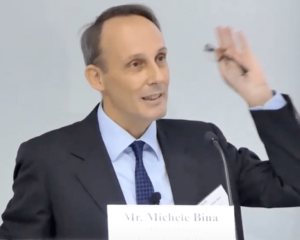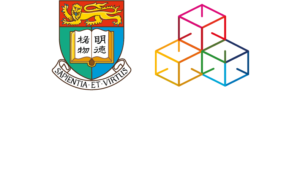Mr. Bina Michele Alessandro
"Working in a corporate Foundation, with my existing knowledge and focus mostly being on social outcomes, I enrolled in SLG (previously known as CEG) to expand my knowledge around current trends and best practices across the wider ESG ecosystem."
Alumni Profile
What are the current trends driving the increased importance of sustainability, and how are businesses adapting to these trends?
The failure of COP15 in Copenhagen in 2009 helped to focus the minds of leaders globally on solutions to the climate problem, particularly after the 2015 Paris Agreement. At the same time the private sector, and particularly the investment management sector, has increasingly looked beyond quarterly results. Asking questions about the longer-term viability of a number of increasingly unsustainable businesses and the better returns potentially offered by sustainable businesses. These two trends have reinforced each other and helped place sustainability higher on the agenda amongst politicians, business leaders and the public. In turn businesses increasingly need to hire professionals who not only understand these issues but have the skills set to offer practical pathways to move businesses onto a sustainable footing. It is very likely that the CEO of the future will also need the skills of a “Chief Sustainability Officer” to lead a business and capture the opportunities of a new, more sustainable, economic paradigm that is gradually emerging.
What are your thoughts when someone says they want to study ESG versus learning about sustainability? How might earning a diploma in ESG shape your career path differently than a diploma in sustainability?
ESG is more focused on corporate practices and reporting standards, which are increasingly prominent. This is a global trend that we are seeing. Sustainability is a broader concept, more holistic; it’s about environmental stewardship, societal aspects, and so on. They are sort of linked but separate as well. You can shape your career depending on whether you aim for a more strategic corporate role or advocacy or policy. There is a wide range of careers open for you.
What are one or two key things you gained from the programme? How did it help you, and what impact did it have on you?
It gave me what I lacked: a framework and a roadmap. What does it mean to become sustainable and to move toward sustainability? It’s an intuitive concept for a lot of people, but at the end of the day you have to actually implement a strategy. The course gives you that ability to plot a roadmap. And the ability to measure impacts. We live in a world where people like to see numbers. And the ability to measure impacts and to rationally explain them with numbers is increasingly essential.
One of the key lessons of the SLG (previously known as CEG) course has been to raise my awareness of, and think more holistically about, the multidimensionality and the interlinkages that exist around sustainability issues. These require significant interdisciplinary skills, many of which are taught during the course, and an ability to think beyond the immediate perimeter of an issue. The SLG (previously known as CEG) course teaches multiple frameworks within which to analyse these, often complex, interlinkages. The course helped me to breach silos thinking and to look, for example, at the total economic value of an initiative and taught the required techniques. This is increasingly important to build the investment case of projects that help increase the sustainability of our environment, societies and economies. Can you provide an example of how you’ve applied specific learnings from the course in your professional work? In my role as Senior Consultant at the International Renewable Energy Agency I help build the case for investments in renewable energy generation projects in developing countries. There is a tendency, when looking at these investments, to look at the financial return offered by the project’s immediate scope: the generation of electricity. I am attempting to highlight the broader benefits of bringing electricity to communities that have not had access to electrification. In this case contextualising investments within the broader framework of the Sustainable Development Goals helps to highlight these additional benefits. The challenge of bringing out the key metrics of these additional benefits and reporting them in a consistent and increasingly accepted framework, such as the Global Reporting Initiative, is also something we learnt during the SLG (previously known as CEG) course. How can this programme help prospective students with prior experience in the environmental field but not in other industries? The skills that one learns in this course are applicable in a vast range of jobs. If you already have an environmental background, you can add to your skillset and look at things a slightly different way. This course will, in my experience, expand your view and embrace other avenues within the sustainability space that you may not have thought of before.


